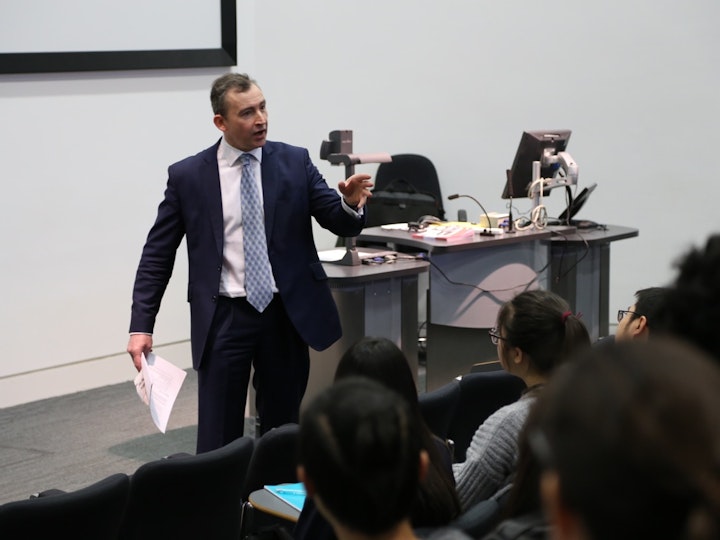Review: Image, communications and the role of politics in financial services and regulation

| Event information | |
|---|---|
| Date | 1 November 2017 |
| Time | 18:00-19:00 (Timezone: Europe/London) |
| Venue | ICMA 105 |
Event types: |
|
The short answer is no, not the majority.
The long answer is that outright criminality (cf the recent HBOS scandal local to us in Reading) and incompetence boarding on negligence at the top (maybe Dick Fuld?) should be punished.
Tim Skeet is an experienced banker and an advocate for the role of financial services in society: he emphasised the importance of a thriving financial sector for economic growth. What I took from his talk is that he certainly believes in regulation - but it has to be the right kind of regulation, applied to the right areas of finance.
The wrong kind of regulation is regulation passed in a hurry, by politicians with a time horizon that doesn't extend beyond the five year election cycle, in response to public anger, without a robust analysis of the underlying causes of the issues (we're talking about the 2008 crash here of course).
He illustrated this with some nice points, examples and perspectives I had not considered before. Here's a sample of them:
- Was the crash really caused by investment bankers? They're easy targets because they are rich, but you can argue the crash was caused by mistakes made in the middle-level lending departments of banks.
- Was it really a global financial crisis? It was a "Western" financial crisis, impacting New York, London, Paris and Frankfurt etc... not India, China and the East.
- We had a debate about the Dodd Frank act (it was more entertaining than it sounds!). Somebody in the room had actually read the entire document, which is just about the most impressive thing I've heard all term. Unsurprisingly, she was a lawyer and not a banker. I think we settled that it was around 800,000 pages long (!) compared to the original regulations which were just over 60 pages.
- The outcome is that a tremendous amount of time and energy is devoted to compliance, hurting productivity.
That's just a sample of what Tim covered. He also talked about how much he had enjoyed his career and encouraged people to pursue careers in finance where you can work alongside talented people and enjoy international travel. However, he also cautioned that he had lost his job several times and advised people that they need to be flexible and robust to build a career in the industry.
Finally, and here's an easy tip for you all, he had three MUSTS for all aspiring bankers who wanted to be on top of events:
- Read the FT every day
- Read the Economist every week
- Watch the Big Short
I totally concur with this - when students come in and talk with me, I want to feel like you know more than me!
We're collecting feedback on the talk here.
You can read more about Tim and his extensive experience in financial services here and follow him on Twitter here.
Next week we're hearing from a managing director at an investment bank. He's going to tell us what it takes to get into investment banking. I've already had a lot of enquiries about this talk and people are already booking on, so sign up before you miss out.
Thanks
Dan